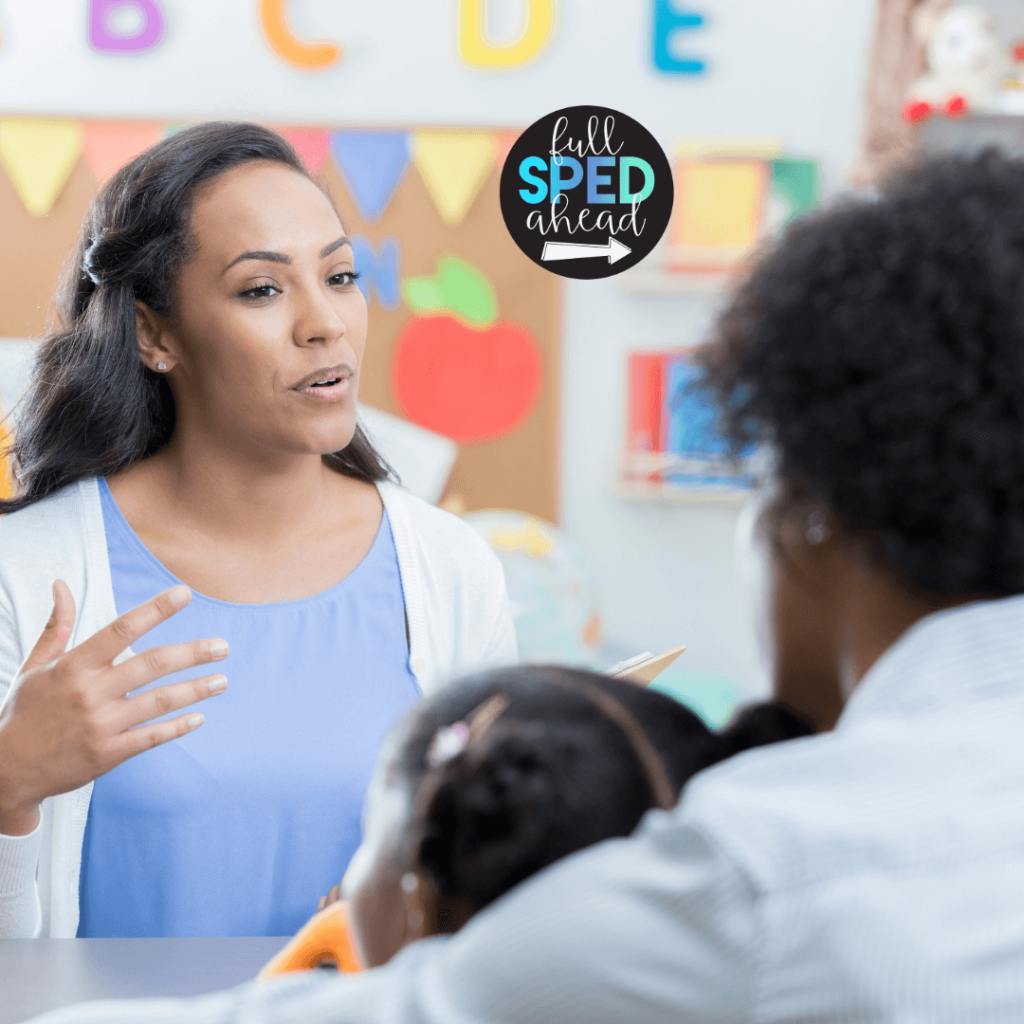Effective parent communication in special education with teachers and parents is essential for fostering a supportive and successful learning environment for students with disabilities. Parents and educators are partners in the educational journey, working together to ensure that each child’s unique needs are met. Strong communication builds trust, encourages collaboration, and helps create a unified approach to supporting students. In this blog post, we’ll explore the importance of parent communication in special education and offer five tips to help build communication and trust with special education families.
Grab this free parent communication form!
Parents are often the most knowledgeable about their child’s strengths, challenges, and preferences. By maintaining open lines of communication, educators can gain valuable insights from parents that inform instructional strategies, behavior interventions, and individualized education plans (IEPs). When parents and teachers collaborate, they can create a cohesive support system that addresses the child’s holistic needs.
Research has shown that strong parent-teacher communication positively impacts student outcomes. When parents are engaged and informed about their child’s progress and educational experiences, they are better equipped to reinforce learning at home and provide additional support. This partnership leads to improved academic performance, better behavior, and increased social-emotional development.
Grab this free parent communication form!
The special education process can be complex and, at times, overwhelming for families. Regular and transparent communication helps build trust between parents and educators, reducing anxiety and uncertainty. When parents feel confident that their child’s needs are being met, they are more likely to participate actively in the educational process and advocate for their child. Continue to promote strong parent communication in special education.
Challenges and concerns are inevitable in any educational setting. However, when communication channels are open, issues can be addressed and resolved more quickly. Early intervention and proactive communication prevent small problems from escalating and ensure that students receive timely support.
Special education teachers have a legal and ethical obligation to keep parents informed about their child’s progress, IEP goals, and any changes to their educational program. Consistent communication ensures compliance with federal and state regulations and demonstrates respect for parents’ rights and involvement in their child’s education.
Check out the procedural safeguards
Set up consistent and predictable communication channels with parents. This can include weekly or monthly newsletters, regular emails, phone calls, or using communication apps like ClassDojo or Remind. Establishing a routine for communication helps parents know when to expect updates and reinforces the importance of staying connected. Continue to promote strong parent communication in special education.
Special education terminology and jargon can be confusing for parents. Use clear, straightforward language when discussing their child’s progress, IEP goals, and any concerns. Avoid technical terms and acronyms unless you are sure the parent understands them, and always be willing to explain concepts in more detail.
Encourage parents to actively participate in the IEP process by seeking their input and feedback. Schedule IEP meetings at times that are convenient for parents and provide them with ample notice. Share draft IEP documents ahead of time so parents can review and prepare questions or suggestions. Ensuring that parents feel heard and valued during the IEP process fosters a collaborative and trusting relationship.
Grab this free parent input statement IEP form

Share positive updates and celebrate your student’s successes and milestones, no matter how small. Recognizing and celebrating progress helps build a positive rapport with parents and reinforces the idea that you are invested in their child’s growth and development. Regularly sharing successes also creates a more balanced view of the student’s overall progress. Continue to promote strong parent communication in special education.
Make yourself available and approachable for parents to discuss any questions or concerns they may have. Respond to emails and phone calls promptly, and be open to scheduling meetings or conferences as needed. Demonstrating a willingness to listen and address concerns builds trust and shows parents that you are dedicated to their child’s well-being.
Grab this free parent communication form!
Effective parent communication in special education is a cornerstone of successful special education services. By fostering open, transparent, and consistent communication, special education teachers can build trust, enhance collaboration, and ultimately support better outcomes for their students. Implementing these five tips can help you establish strong, positive relationships with special education families and create a supportive educational environment where every student can thrive.
Read more about parent communication in special education:
What are you looking for?
COPYRIGHT © 2025 Full SPED Ahead